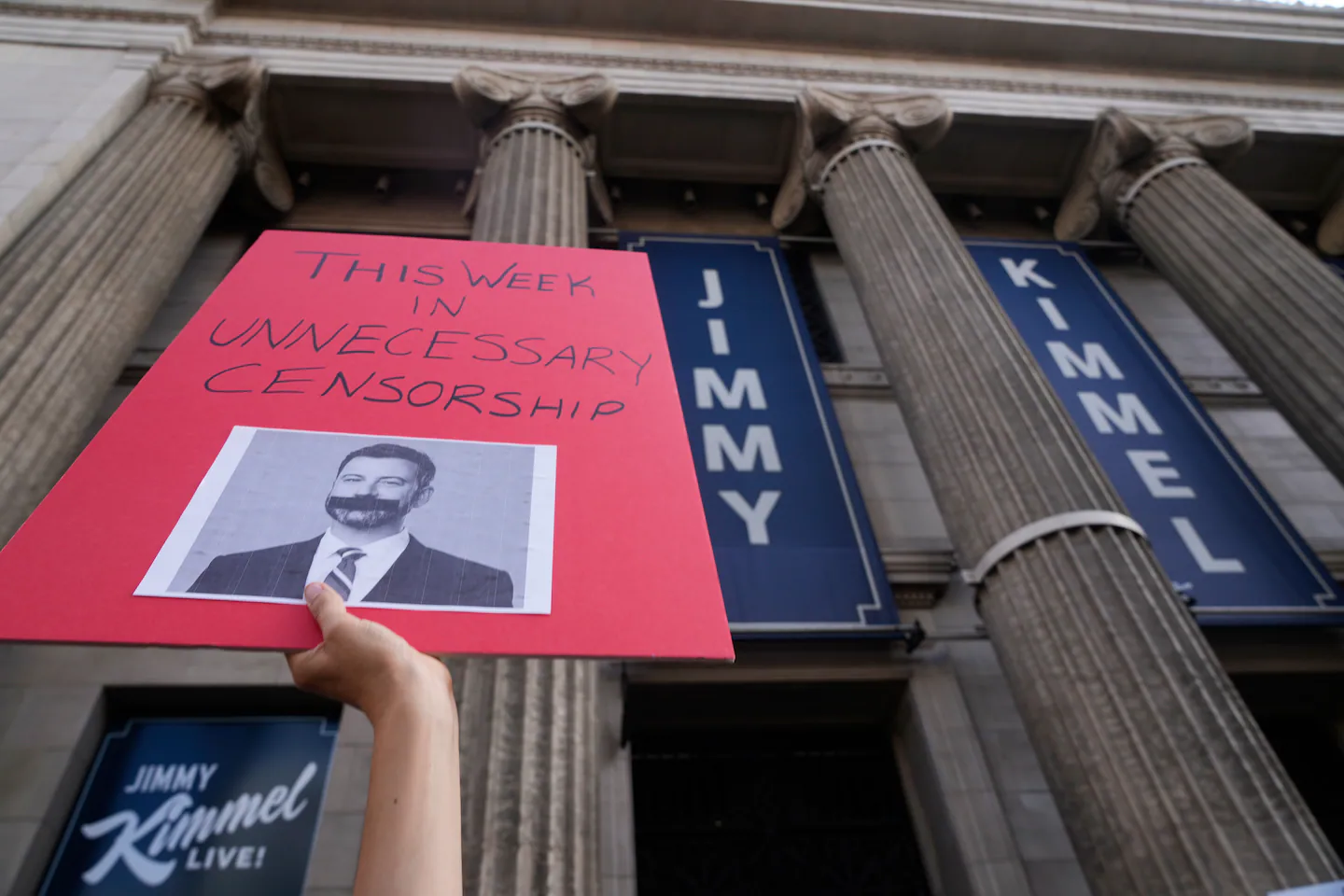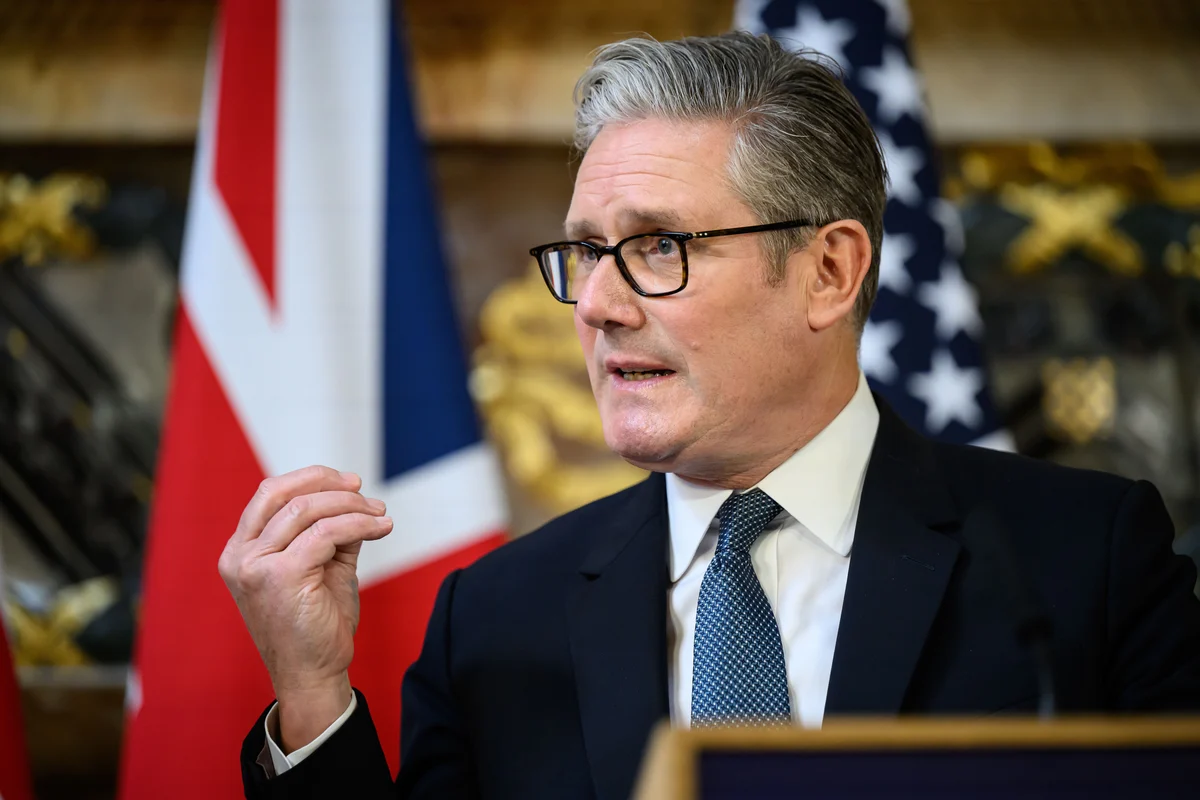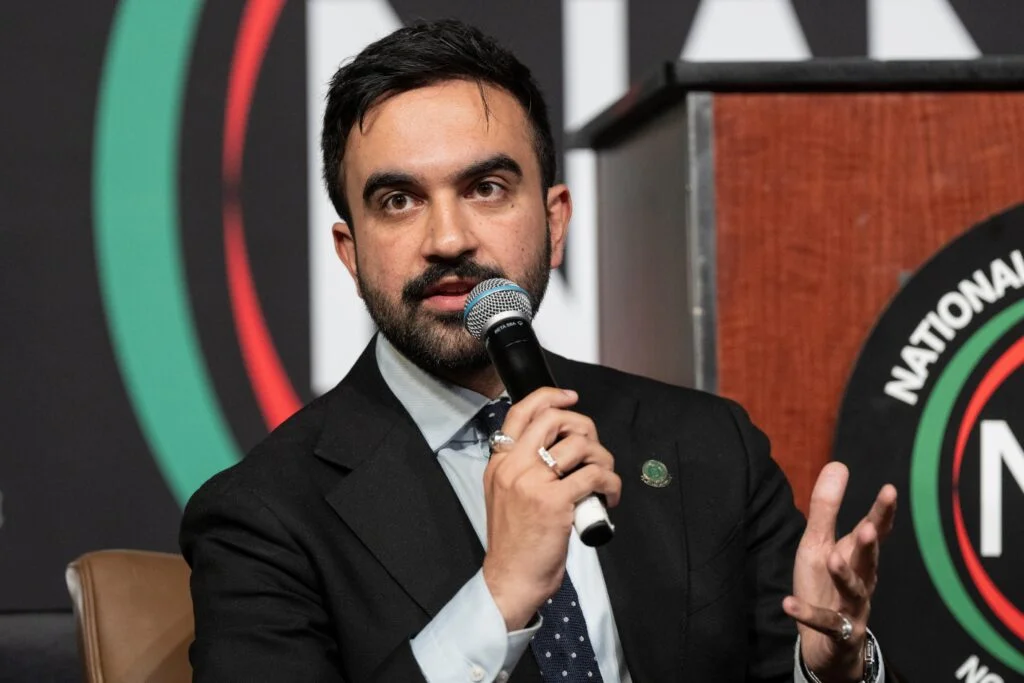
“The FCC should promote freedom of speech, unleash economic opportunity, ensure that every American has a fair shot at next-generation connectivity, and enable the private sector to create good-paying jobs through pro-growth reforms that support a diversity of viewpoints, ensure secure and competitive communications networks, modernize outdated infrastructure rules, and represent good stewardship of taxpayer dollars.” — Project 2025
Earlier this week, ABC suspended Jimmy Kimmel’s late-night show indefinitely following comments he made about Charlie Kirk’s killing, and Trump on Thursday said regulators should consider pulling broadcast licenses from networks where TV hosts speak negatively of him.
During a podcast appearance this week, FCC Chairman Brendan Carr struck a similar tone, saying the licenses come with an “obligation to operate in the public interest” and that companies “can find ways to change conduct,” the Associated Press reported.
It was Carr who wrote the FCC chapter for Project 2025, in which he said the nation’s top watchdog over the broadcast industry “should promote freedom of speech.” Since taking over, Carr, who has repeatedly accused the media of liberal bias, has launched investigations of ABC, NBC, and CBS.
“No legal entitlement exists for the provision of permanent space for media on the White House campus, and the next Administration should reexamine the balance between media demands and space constraints on the White House premises.” — Project 2025
Project 2025 suggests that the White House reevaluate its relationship with the press — questioning whether there’s enough “space” for all reporters, and suggesting the administration should work with “an alternative coordinating body” rather than the White House Correspondents’ Association, which represents dozens of news organizations.
It didn’t take long for the Trump administration to begin curtailing press access.
In February, the White House blocked the Associated Press from being among the journalists allowed access to Trump at presidential events because the outlet did not follow his directive to rename the Gulf of Mexico the “Gulf of America.” The AP filed a lawsuit alleging the move was a violation of the First Amendment.
That same month, the White House announced it would decide which outlets are part of the pool. Meanwhile, the WHCA reversed decades of precedent by formally ceding control of pool reports to the Trump administration, which are routinely used in news coverage, and saying it would no longer manage the rotating group of reporters who cover events at the White House, POLITICO reported.
The White House also began exerting more control over the press briefing room.
In March, HuffPost was briefly booted from the pool, while Bloomberg and Reuters were forced to share a wire spot. News also surfaced the White House was planning to take over the seating chart in the briefing room.
In April, a federal judge ruled in the AP’s favor, saying the government cannot retaliate against the news organization for the content of its speech. The White House responded by implementing a new media policy that restricts the access to the president for all three wire services — the AP, Bloomberg, and Reuters.
At the same time, White House Press Secretary Karoline Leavitt has expanded access to outlets friendly to Trump. The administration added a seat for “new media,” a broad category that includes right-wing podcasters, digital upstarts, and partisan influencers, in the briefing room.
The administration’s efforts to restrict press coverage and access extend to the Pentagon as well. In a lengthy memo to media members Friday, Pentagon officials said information from the Department of Defense “must be approved for public release by an appropriate authorizing official before it is released, even if it is unclassified,” the New York Times reported. Unauthorized disclosures could lead to the revocation of press credentials, the memo said.
The new guidelines also restrict reporter access to portions the Pentagon, with members of the media required to be escorted, according to the New York Times.
“Every Republican President since Richard Nixon has tried to strip the Corporation for Public Broadcasting (CPB) of taxpayer funding. … All of which means that the next conservative President must finally get this done and do it despite opposition from congressional members of his own party if necessary. To stop public funding is good policy and good politics.” — Project 2025
The authors of Project 2025 were frank about their desire to kill federal funding for public broadcasting.
The document cites late Supreme Court Justice Antonin Scalia as saying that conservatives were being “confronted with a long-range problem of significant social consequences — that is, the development of a government-funded broadcast system similar to the BBC.”
To eliminate funding, the authors framed the president’s action plan as a simple one: Telling “Congress — through the budget he proposes and through personal contact — that he will not sign an appropriations spending bill that contains a penny for the” Corporation for Public Broadcasting.
And that’s what Trump did.
The CPB, a private nonprofit corporation, was founded in 1968 and helped pay for PBS, NPR, and local radio and television stations nationwide. Trump claimed it was espousing “un-American” attitudes and that public broadcasting has an extreme liberal bias.
In July, Trump signed a bill canceling about $1.1 billion in federal funding for the CPB, and shortly after, the corporation announced it was shutting down. Local public stations across the country are facing massive budget shortfalls — and some are already being forced to go off the air.
“In addition, the Department of Justice should use all of the tools at its disposal to investigate leaks and should rescind damaging guidance by Attorney General Merrick Garland that limits investigators’ ability to identify records of unauthorized disclosures of classified information to the media.” — Project 2025
During the Biden administration, the Justice Department said it would no longer obtain reporters’ records during leak investigations without their knowledge.
In June 2021, journalists from the Washington Post, CNN, and the New York Times had been informed their phone records were obtained in the final year of the Trump administration. President Joe Biden called the practice “simply, simply wrong.”
But in April, the DOJ — now overseen by Attorney General Pam Bondi — rescinded the Biden-era policy.
“Federal government employees intentionally leaking sensitive information to the media undermines the ability of the Department of Justice to uphold the rule of law, protect civil rights, and keep America safe. This conduct is illegal and wrong, and it must stop,” Bondi said in an internal memo, NPR reported.
Project 2025 also suggests the president should punish former intelligence officials who speak to reporters by “immediately” revoking their security clearance. Trump has also exercised this tactic.
“If the defacto aim of the agency simply remains to compete in foreign markets using anti-US talking points that parrot America’s adversaries’ propaganda, then this represents an unacceptable burden to the US taxpayer and a negative return on investment. In that case, the [United States Agency for Global Media] should be defunded and disestablished.” — Project 2025
Established in 1942, Voice of America is the largest international broadcaster in the country and delivers news to millions of people around the world. The broadcaster is part of the US Agency for Global Media, the government agency that oversees all non-military and US international broadcasting. While USAGM networks advance American interests, their editorial freedom has long been protected by a “firewall” that “prohibits interference by any US government official.”
In March, Trump issued an executive order to eliminate USAGM — thereby stripping VOA of federal funding — to the maximum extent allowed, POLITICO reported.
Since then, many people at VOA and USAGM have lost their jobs, with USAGM announcing 500 more cuts at the end of August. That same month, a federal judge ordered Kari Lake, senior advisor for USAGM, to submit to questioning concerning efforts to dismantle VOA despite his order that operations be restored.



